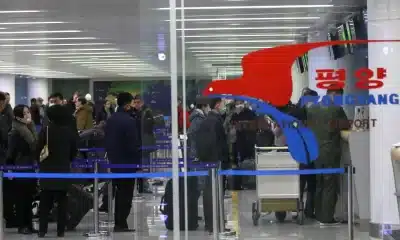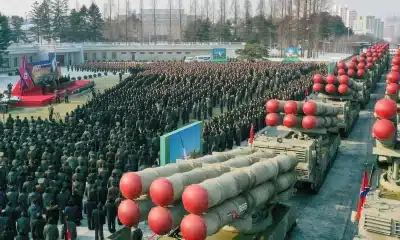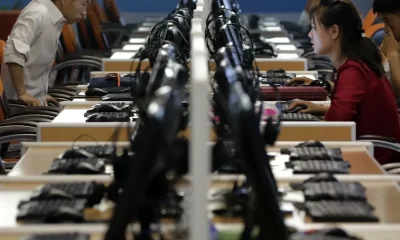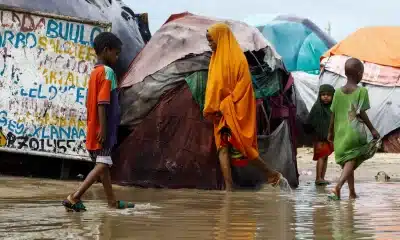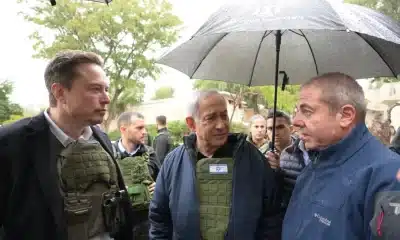World
North Korea’s Kim Calls For Unity To Boost Grain Production
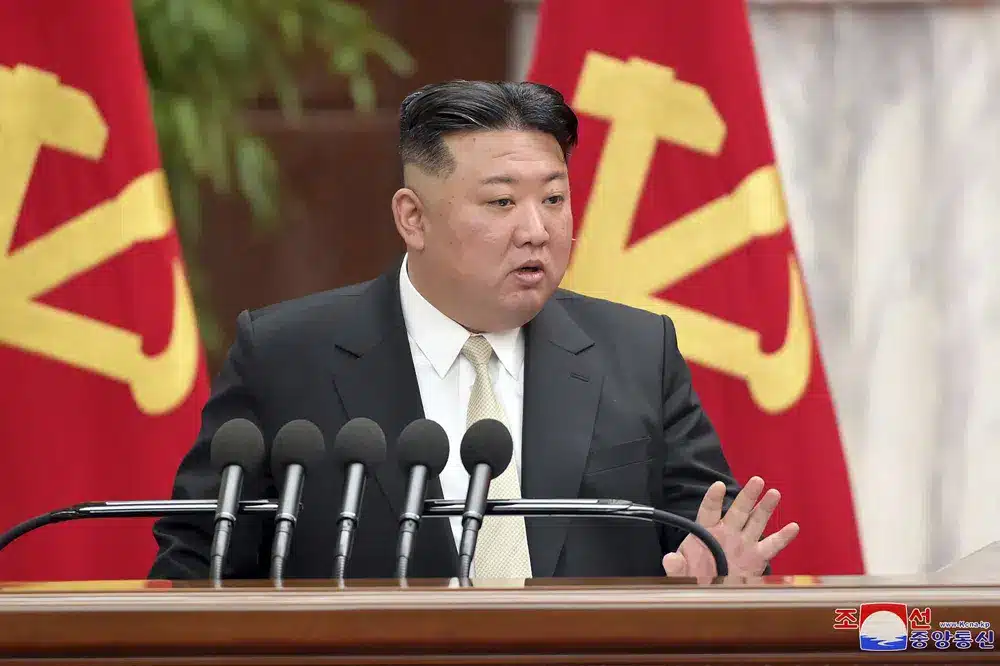
South Korea’s SEOUL — North Korean ruler Kim Jong Un has called for greater public support for his leadership to significantly increase the country’s grain production, state media reported Tuesday, amid outside concerns about the country’s worsening food insecurity.
Foreign experts say that COVID-19 border restrictions and a rumored push for the government to have more control over grain supply have made it very hard for North Korea to get food. Experts say that there is no proof that the shortage has caused mass deaths or famine.
According to the official Korean Central News Agency, Kim told a meeting of the ruling Workers’ Party on Monday that his government was determined “to bring about a revolutionary turn in agricultural production no matter what.”
“Nothing is impossible as long as there is a strong leadership system in the entire party and the united might of all the people,” Kim said.
KCNA did not say whether Kim presented any specific steps to increase grain production. Many people think that North Korea needs to buy more fertilizer, pesticides, and farm equipment in order to increase grain production. This is because North Korea spends most of its limited resources on its nuclear weapons program.
North Korea’s chronic food shortage has most likely worsened due to COVID-19 restrictions that have stifled its external trade, ongoing US-led sanctions, and its mismanagement.
North Korea’s chronic food shortage has most likely worsened due to COVID-19.
According to South Korean estimates, North Korea produced 4.5 million tons of grain last year. Its annual production was estimated to be 4.4 million to 4.8 million tons in the previous decade. According to South Korea’s spy agency, North Korea requires 5.5 million tons of grain annually to feed its 25 million people.
Unofficial grain purchases from China used to cover about half of the gap, but pandemic-related border closures have likely reduced those transactions. According to Kwon Tae-jin, a senior economist at the private GS&J Institute in South Korea, the situation was exacerbated by a decline in people’s earnings and the government’s unsuccessful efforts to supply grain through state-run facilities while restricting private dealing at markets.
According to most analysts, North Korea’s current food shortage is nowhere near the extremes of the 1990s, when famine killed hundreds of thousands of people. They believe the party’s Central Committee meeting was partly held to promote Kim’s image as a leader concerned about his people at a time when he is at odds with the US over his nuclear program.
The plenary session began on Sunday and was scheduled to last at least one more day.
According to Kim, the conference’s main purpose was to find immediate ways to meet this year’s grain production goal and scientifically feasible long-term objectives to radically increase agricultural production within a few years, according to KCNA. According to KCNA, other senior officials examined unspecified flaws in previous rural development projects and proposed solutions.
Increasing grain production is one of the 12 economic goals adopted by North Korea’s ruling party at a previous party meeting in December. Grain production must be increased at all costs, according to state media.
SOURCE – (AP)
World
US Navy Flies Aircraft Through The Taiwan Strait A Day After US – China Defense Chiefs Hold Rare Talks
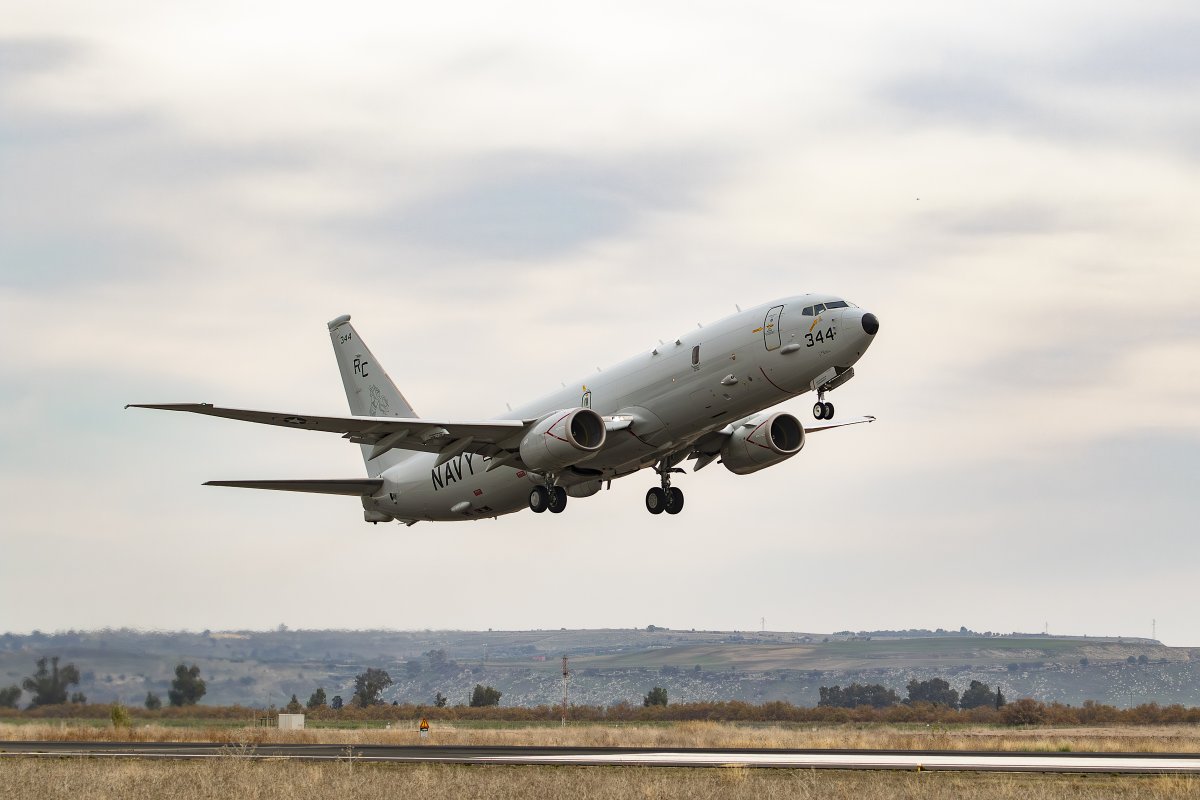
TAIPEI, Taiwan — The U.S. 7th Fleet reported that a Navy P-8A Poseidon flew through the Taiwan Strait on Wednesday, a day after U.S. and Chinese defense leaders conducted their first discussions since November 2022 to ease regional tensions.
The patrol and reconnaissance jet “transited the Taiwan Strait in international airspace,” according to a 7th Fleet news release.
AP – VOR News Image
US Navy Flies Aircraft Through The Taiwan Strait A Day After US – China Defense Chiefs Hold Rare Talks
The statement stated, “By operating within the Taiwan Strait in accordance with international law, the United States upholds the navigational rights and freedoms of all nations.”
The vital strait, 160 kilometers (100 miles) wide, separates China from the self-governing island democracy. Although it is on the international seas, China regards the passage of foreign military aircraft and ships through it as a threat to its sovereignty.
China claims Taiwan and has threatened to protect it with force if necessary, despite U.S. military support for the island.
According to a report on the Chinese People’s Liberation Army’s Eastern Theater Command’s official Weibo social media site, China dispatched fighter jets to “monitor the U.S. plane’s passage” and operated “in accordance with laws and regulations.”
“Theater troops are on high alert at all times to resolutely safeguard national sovereignty and security as well as regional peace and stability,” Li said in a statement.

Taiwan News – VOR News Image
US Navy Flies Aircraft Through The Taiwan Strait A Day After US – China Defense Chiefs Hold Rare Talks
China often issues severe protests and deploys fortifications in reaction to the passage of ships and military planes across the Straight, particularly those from the United States.
China also regularly deploys navy ships and airplanes into the strait and other locations around the island to wear down Taiwan’s defenses and scare its 23 million people, who staunchly support their de facto independence.
“By operating in the Taiwan Strait in conformity with international law, the United States protects all nations’ navigational rights and freedoms. The aircraft’s passage through the Taiwan Strait underlines the U.S. commitment to a free and open Indo-Pacific. According to the 7th Fleet statement, the United States military flies, sails, and operates wherever international law allows.
U.S. Defense Secretary Lloyd Austin spoke with his Chinese counterpart, Adm. Dong Jun, on Tuesday in the latest move to strengthen relations with the Chinese military and lessen the likelihood of a regional conflict.
It was Austin’s first time speaking with Dong and his first time speaking in depth with any Chinese counterpart since November 2022. The call lasted slightly more than an hour, as U.S. Secretary of State Antony Blinken will visit China this month for discussions.
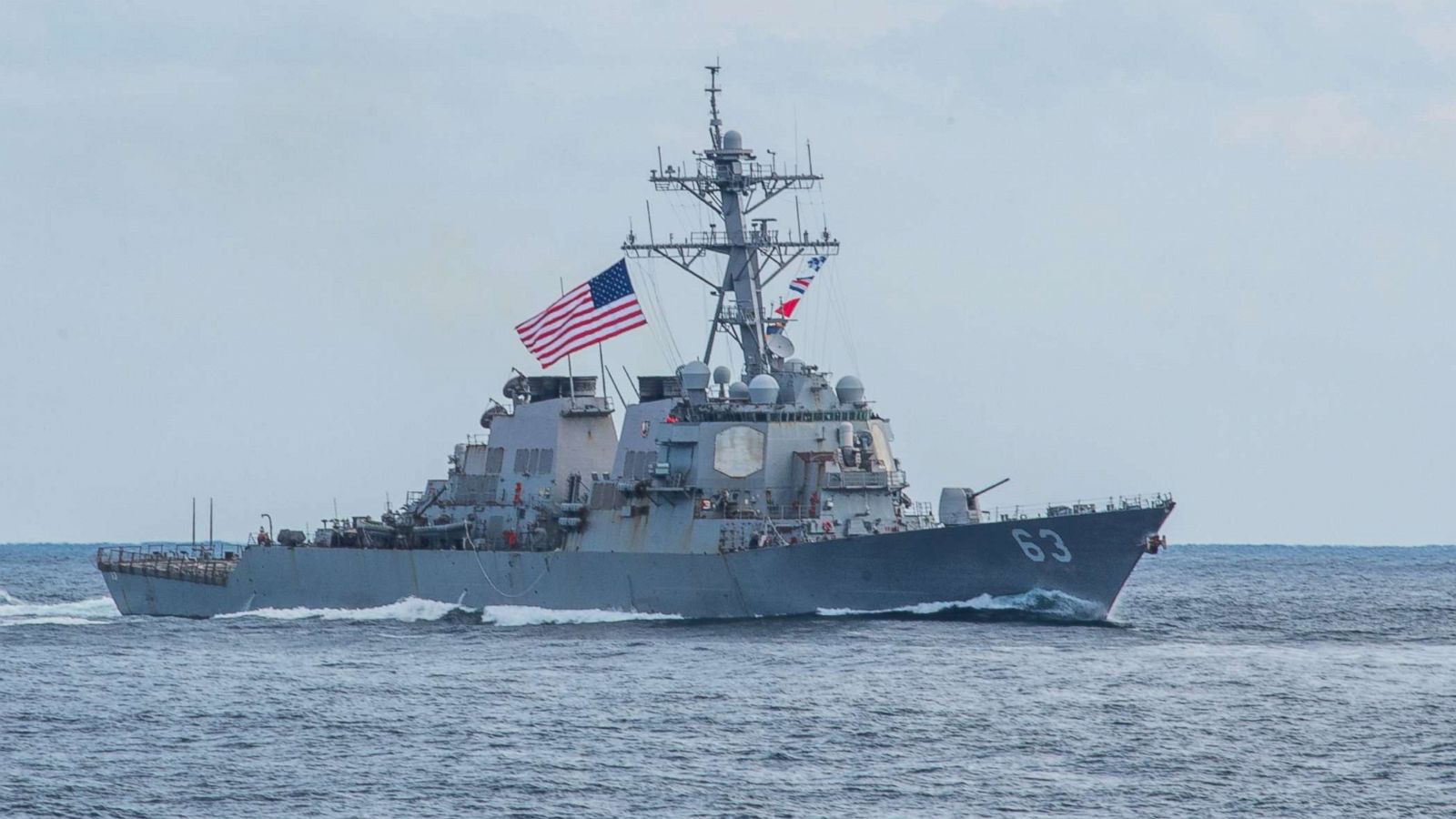
ABC – VOR News Image
US Navy Flies Aircraft Through The Taiwan Strait A Day After US – China Defense Chiefs Hold Rare Talks
Military-to-military contact ended in August 2022 when Beijing terminated all communication following a visit by then-House Speaker Nancy Pelosi to Asia. China replied by firing missiles over the country and increasing military exercises, including what seemed to be a rehearsal for a naval and aerial blockade of the island.
SOURCE – (AP)
World
Death Toll From 4 Days Of Rains Rises To 63 In Pakistan With More Rain On The Forecast
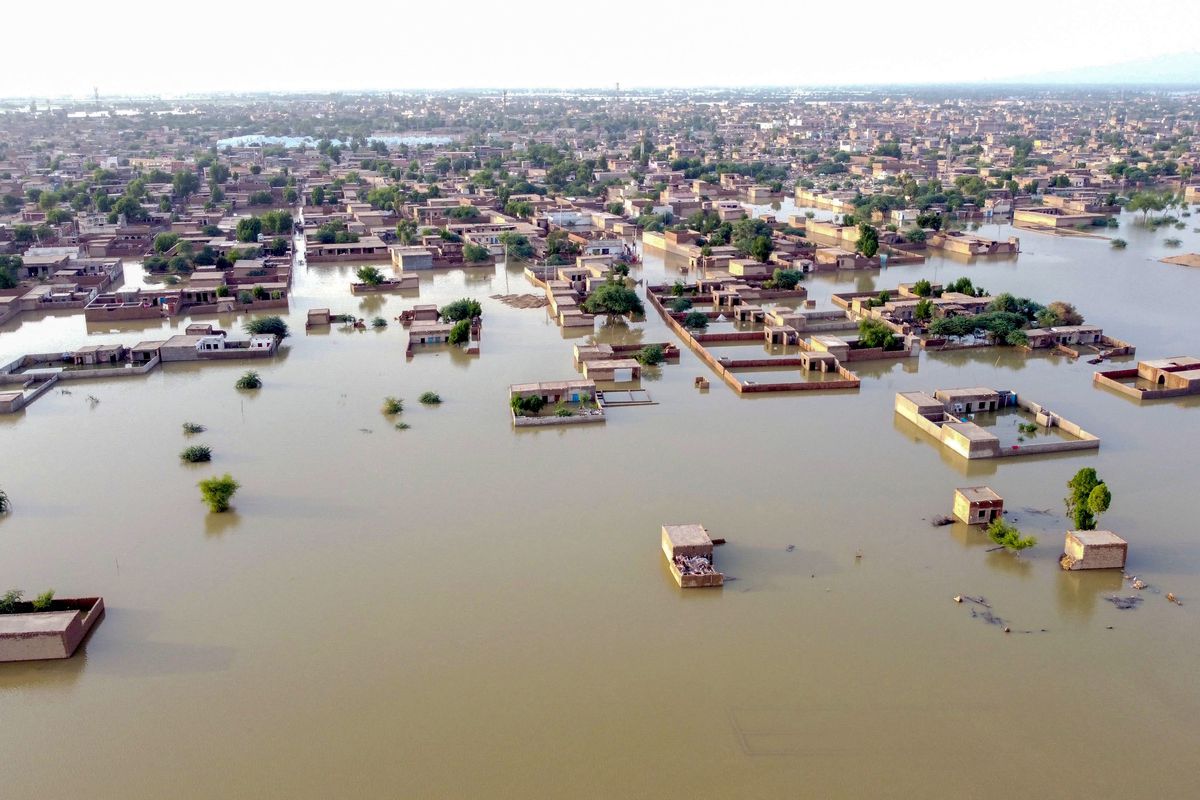
Peshawar, Pakistan — Lightning and torrential rains killed 14 people in Pakistan on Wednesday, increasing the total death toll from four days of extreme weather to at least 63. The biggest rainstorm in decades inundated towns on the country’s southwestern coast. In neighboring Afghanistan, flash floods have killed hundreds.
In Pakistan, the majority of the deaths were reported in Khyber Pakhtunkhwa province, located in the northwest. According to Khursheed Anwar, a spokesman for the Disaster Management Authority, 32 people have died as a result of building collapses, including 15 children and five women. Anwar reported that dozens more people were hurt in the region, which reportedly suffered damage to 1,370 homes.
AP – VOR News Image
Death Toll From 4 Days Of Rains Rises To 63 In Pakistan With More Rain On The Forecast
The eastern region of Punjab has recorded 21 deaths due to lightning and collapse, while Baluchistan in the country’s southwest has reported 10 deaths as officials issued a state of emergency in response to flash floods.
Baluchistan was braced for additional rains on Wednesday while rescue and relief activities continued, as flash floods flooded villages near the coastal city of Gwadar.
Heavy rains also fell on the disputed Himalayan region of Kashmir. Authorities warned that a second round of heavy rain will affect numerous places, including the capital, Karachi.
According to Zaheer Ahmed Babar, a senior official with the Pakistan Meteorological Department, Pakistan will experience more rain in April due to climate change.
“This month, so far, there has been 353% more rainfall than normal in Baluchistan,” Babar told The Press. “Overall, rainfall has been 99% higher than the average across Pakistan, and it shows climate change has already happened in our country.”
AP – VOR News Image
Death Toll From 4 Days Of Rains Rises To 63 In Pakistan With More Rain On The Forecast
Babar reported that Khyber Pakhtunkhwa province received 90% more rain than typical in April, but rainfall in other regions of the country remained relatively normal. This has been the wettest April in the last 30 years.
In 2022, downpours swelled rivers and flooded a third of Pakistan, killing 1,739 people. The floods also inflicted $30 billion in damage, which Pakistan is currently working to repair. That year, rainfall in Baluchistan was 590% above average, while Karachi received 726% more than usual.
Meanwhile, the death toll in neighboring Afghanistan has risen to 70, with 37 additional people killed in recent rain and flash flooding occurrences, according to Abdullah Janan Saiq, the Taliban’s spokesperson for the State Ministry of Natural Disasters.
AP – VOR News Image
Death Toll From 4 Days Of Rains Rises To 63 In Pakistan With More Rain On The Forecast
He also stated that flash floods have damaged 2,000 homes, three mosques, and four schools, affecting thousands of individuals who will require humanitarian help. Floods also devastated agricultural land, killing 2,500 livestock, according to Saiq.
SOURCE – (AP)
World
British Envoy Says Israel Is ‘Making A Decision To Act’ As Iran Vows To Respond To Any Incursion

JERUSALEM — British Foreign Secretary David Cameron said Wednesday that Israel “is making a decision to act” in response to Iran’s missile and drone attacks over the weekend, while Iran warned that even the “tiniest” assault of its territory would result in a “massive and harsh” reaction.
Israel has promised to retaliate to Iran’s unprecedented attack without specifying when or how leaving the region braced for more escalation following months of turmoil connected to the ongoing conflict in Gaza. Israel’s closest allies, including the United States and the United Kingdom, who assisted in repelling the Iranian strike, are attempting to contain any further escalation.
AP- VOR News Image
British Envoy Says Israel Is ‘Making A Decision To Act’ As Iran Vows To Respond To Any Incursion
Iran’s President Ebrahim Raisi, meanwhile, warned Israel against retribution as he attended an annual army parade, which had been shifted to a barracks from its customary route and was not shown live on state television, possibly due to fears of being targeted.
In remarks broadcast by Iran’s official IRNA news agency, Raisi said Saturday’s attack was limited and that if Iran had intended to carry out a larger attack, “nothing would remain from the Zionist regime.”
Adding to already high tensions, Lebanon’s Hezbollah launched a rocket attack on a northern Israeli border town on Wednesday, injuring 13 people, four of them critically, according to the Israeli rescue service Magen David Adom. The Iran-backed militant organization said it was in revenge for the deaths of several of its fighters, including a commander, in Israeli airstrikes on Lebanon the day before.
On Wednesday, Cameron and Germany’s Foreign Minister Annalena Baerbock visited Israel separately to meet top officials. The two European countries, Israel’s closest allies, have recommended caution.
Cameron stated that “it’s clear the Israelis are making a decision to act” against Iran, but he hoped they would do so “in a way that is smart as well as tough and also does as little as possible to escalate this conflict.” He said that after meeting with Israel’s President, Isaac Herzog, whose position is largely ceremonial,
Cameron stated that the primary goal of his visit was to refocus attention on the ongoing conflict in Gaza, including the need for a cease-fire and the release of Hamas hostages.
Baerbock stated that Germany is “in full solidarity with Israel” but urged it to exhibit caution.
“Everyone must now be prudent and responsible. I am not talking about giving in. “I am talking about prudent restraint, which is nothing short of strength,” she told reporters. “Because Israel has already shown strength with its defensive victory at the weekend.”
AP- VOR News Image
British Envoy Says Israel Is ‘Making A Decision To Act’ As Iran Vows To Respond To Any Incursion
The ministers indicated they would advocate for additional international sanctions on Iran.
Israeli Prime Minister Benjamin Netanyahu said he met with both ministers and thanked them for their countries’ assistance.
“They give a variety of options and advice. I appreciate it. But I want to be clear: We will make our own judgments, and the State of Israel will do everything it takes to defend itself,” Netanyahu said in a statement.
Iran fired hundreds of missiles and drones toward Israel over the weekend in retaliation for a purported Israeli raid on Iran’s embassy compound in Syria on April 1, which killed 12 people, including two Iranian generals.
Israel claims to have successfully intercepted nearly all of the missiles and drones with the assistance of the United States, the United Kingdom, neighboring Jordan, and other countries. A seven-year-old child was injured in the attack, which did not result in any fatalities or significant damage.
Israel and Iran have fought a covert war for decades, but the weekend strike was the first direct Iranian military attack on Israel.
Regional tensions have risen since Hamas and Islamic Jihad, two Palestinian armed factions funded by Iran, launched an attack on southern Israel on October 7. The attack killed over 1,200 Israelis, and the extremists held approximately 250 hostages. Israel reacted with one of the deadliest and most damaging military offensives in recent memory, killing approximately 34,000 Palestinians, according to Gaza health officials.
Israel has withdrawn the majority of its forces from Gaza following significant offensives that destroyed its two largest cities, Gaza City and Khan Younis. However, Israeli officials claim the battle is far from done and that they intend to send ground forces into Rafah, the southernmost Gaza city where more than half of the territory’s 2.3 million residents have taken safety from fighting elsewhere.
Hamas is still holding over 130 hostages, with a quarter of them believed to be dead, while international efforts to mediate a cease-fire and hostage release have made no progress.
Since the war began, Hezbollah, another close ally of Iran, has traded fire with Israel along the border on a nearly daily basis in a low-intensity confrontation that risks escalating into all-out war. Iran-backed organizations in Iraq and Syria have also conducted strikes, while Iran-backed Houthi rebels in Yemen have targeted international shipping in the Red Sea, claiming it is a blockade of Israel.
AP- VOR News Image
British Envoy Says Israel Is ‘Making A Decision To Act’ As Iran Vows To Respond To Any Incursion
President Joe Biden’s administration imposed further penalties against Iran on Tuesday and has sought to coordinate a worldwide response to the attack, asking all sides to de-escalate. US officials claimed earlier this week that Biden informed Netanyahu that Washington would not take any offensive measures against Iran.
Israel looks unlikely to attack Iran directly without US cooperation, but it may use more covert ways, such as attacking other prominent Iranian commanders or Iran-backed forces in other countries or conducting a cyber attack.
Given the heightened tensions, it’s uncertain how Iran will respond. Any miscalculation on either side risks sparking a regional conflict.
SOURCE – (AP)
-
News5 months ago
Death Toll From Flooding In Somalia Climbs To Nearly 100
-
Business5 months ago
Google Will Start Deleting ‘Inactive’ Accounts In December. Here’s What You Need To Know
-
Entertainment5 months ago
Merriam-Webster’s 2023 Word Of The Year Is ‘Authentic’
-
Sports5 months ago
Panthers Fire Frank Reich In His First Season With Team Off To NFL-Worst 1-10 Record
-
Celebrity5 months ago
Elon Musk Visits Destroyed Kibbutz and Meets Netanyahu in Wake of Antisemitic Post
-
Celebrity5 months ago
Shane MacGowan, Lead Singer Of The Pogues And A Laureate Of Booze And Beauty, Dies At Age 65



